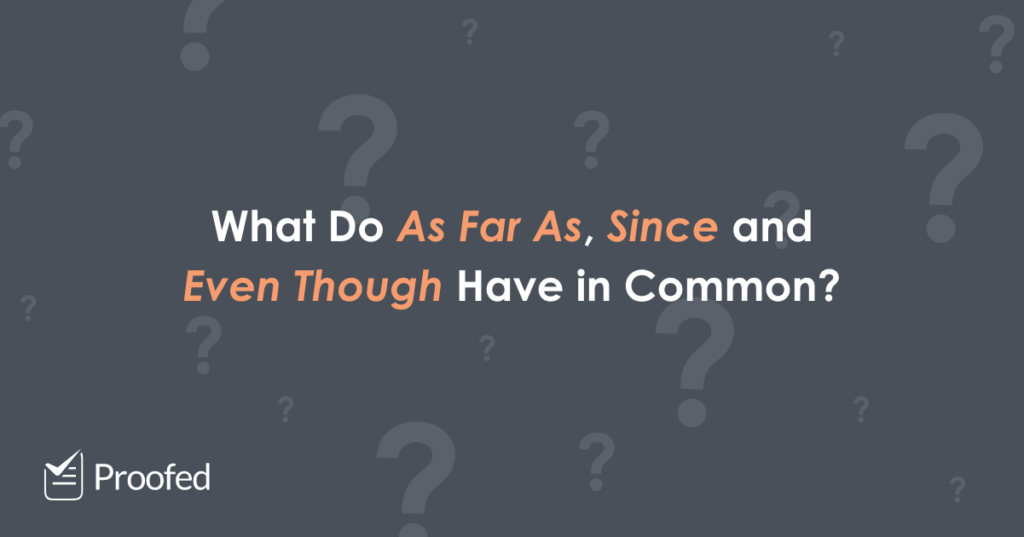We use conjunctions such as ‘and’ and ‘but’ to build grammatical sentences, which helps us to express ourselves clearly.
In this post, then, we look at three conjunctions that you may need to use in your academic writing: ‘as far as’, ‘since’ and ‘even though’.
As Far As (To the Degree That)
Used as a conjunction, ‘as far as’ means ‘to the degree or extent that’. We therefore use it to qualify statements that apply only under particular conditions. A phrase like ‘as far as we know’, for instance, would usually signal that something is based on incomplete information:
The experiment poses no risk as far as we know.
Here, then, we’re saying that the first part of the sentence is true to the best of our understanding. But including ‘as far as’ here suggests that our knowledge of the situation is less than perfect or complete.
In addition, ‘as far as’ is a subordinating conjunction when used like this. And as with all subordinating conjunctions, this means we use it to link a dependent clause (‘as far as we know’) to an independent clause (‘The experiment poses no risk’) when forming a complex sentence.
Since (Time and Justification)
Another subordinating conjunction, ‘since’ has two distinct uses. The first is to specify that something began or occurred after a particular point in time:
Since learning to dance, I’ve felt much more graceful.
Here, for example, by using ‘since’ we’re saying the speaker began feeling graceful only after learning to dance.
Find this useful?
Subscribe to our newsletter and get writing tips from our editors straight to your inbox.
The second main use of this term is to introduce a reason or justification for something. For example, we might say:
Since we are interested in how people subjectively perceive their retail experiences, we have adopted a qualitative research approach.
In this example, ‘since’ joins a clause specifying the reason for picking a research approach to the main clause identifying the approach chosen. It therefore works like the term ‘because’.
Even Though (Despite the Fact That)
Finally, we can use the term ‘even though’ to introduce a contrast. This makes it like saying ‘despite the fact that’. For instance:
Even though he was completely deaf by 1820, Beethoven began writing his final complete work, the Ninth Symphony, in 1822.
Here, we use ‘even though’ because we’d usually expect deafness to curb one’s musical career, but Beethoven defied that expectation.
One key feature here is that, compared to similar terms like ‘although’ and ‘though’, ‘even though’ is more emphatic. We would therefore use it to introduce a contrast that is particularly surprising or unexpected (such as Beethoven’s ability to compose music despite having lost his hearing).
